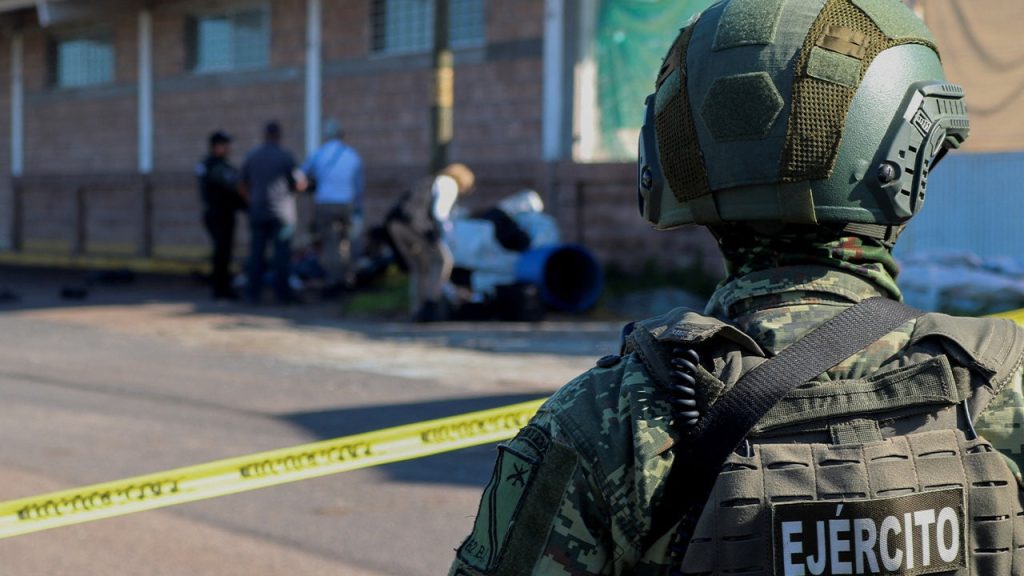The Mexican army has seized the weapons of local police in the cartel-dominated city of Culiacan in the country’s northwest Sinaloa state due to recent violence and gunfights that have plagued the city. The approximately 1,000-strong police force has been pulled off the streets by the state’s governor, Ruben Rocha, and will not be reinstated until their weapons are returned. This move was made following a massive protest by 1,500 residents demanding peace in the capital city, where dozens of deaths had occurred in recent weeks. Soldiers, state police, and national guard units have been called in to replace the local police while the army conducts checks on weaponry serial numbers and validates permits. The Mexican army has previously seized weapons from police forces suspected of aiding cartels or carrying unregistered arms that are harder to trace.
Violent clashes between cartel groups erupted in the Sinaloa region after drug lords Ismael Zambada, known as “El Mayo,” and Joaquín Guzmán López were apprehended in the U.S. on July 25 after flying in on a small plane. Zambada was allegedly forced to board the plane after being abducted by Guzmán López, also known as “El Chapo,” leading to battles between the gang groups called the “Chapitos” and the “Mayitos.” Cartel violence has resulted in open gunfights across Culiacan, including in downtown and upscale neighborhoods, causing concern among parents about the safety of sending their children to school. Governor Rocha has stated that there are two groups facing each other, and authorities are working to confront both without exceptions. The fighting has become so extreme that cartel gunmen are hijacking buses and trucks, setting them ablaze to create highway blockades, including one that Rocha encountered on his way to meet former Mexican President Andrés Manuel López Obrador in late September.
The Mexican government has deployed buses to transport migrants to the U.S. border as illegal immigration has become a top election issue. Amidst the ongoing cartel violence in Culiacan, citizens are calling for peace and an end to the escalating violence. The governor has pledged to establish five “anti-blockade squads” to address the issue of hijacked vehicles being set ablaze, but warned that the hijackings will continue until the cartel groups cease their fighting. The intervention of soldiers, state police, and national guard units in place of the local police aims to restore order and safety in the city. Governor Rocha hopes that the non-routine procedures, such as weapon checks and validation of permits, will be completed soon to ensure the return of the police force to the streets and to address the ongoing violence and instability in Culiacan.
The unrest in Culiacan highlights the pervasive influence of cartels in the region and the challenges faced by local authorities in combating organized crime. The recent clashes and violence between rival cartel groups have intensified the security situation in the city, leading to concerns about the safety of residents and the impact on daily life. The seizure of weapons from the local police underscores the suspicions and distrust of law enforcement agencies suspected of collaborating with cartels or carrying unregistered arms. The involvement of the Mexican army in overseeing the validation of permits and conducting checks on weaponry serial numbers reflects the government’s efforts to address the root causes of the violence and restore law and order in the city. The ongoing conflict between rival cartel factions has created a volatile and hazardous environment, prompting authorities to take decisive action to protect the population and prevent further bloodshed and instability in Culiacan.


